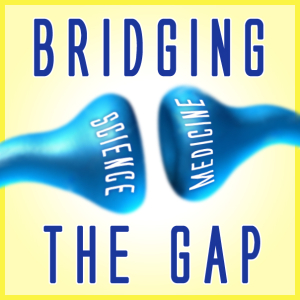 The world’s oldest person, a 116-year-old Japanese woman, Ms. Misao Okawa, recently shared with the media her secret to a long life: “Eat and sleep and you will live a long time.
The world’s oldest person, a 116-year-old Japanese woman, Ms. Misao Okawa, recently shared with the media her secret to a long life: “Eat and sleep and you will live a long time. This advice is certainly appealing to sushi lovers (Ms. Okawa’s favorite meal!) and those who desire the return of “naptime” in school and the workplace.
While the benefits of sleep were discussed in detail in a previous article on Bridging the Gap, the first half of Ms. Okawa’s claim has yet to be unpacked. Is there a remarkable, perhaps, “secret ingredient” to longevity? How does our nutrition affect our ability to succeed in our daily lives? And does one particular diet possess a significant advantage over another? Medical school curriculums do not regularly require courses in nutrition, but neuroscience research details the effects of various diets on both disease outcomes and health states, providing support for the critical role of nutrition on an individual’s wellbeing.
The idea that Ms. Okawa’s favorite meal, sushi, may contribute to her longevity can be considered in the context of the high omega-3 fatty acid content on the fish found in many sushi rolls. Unfortunately, at this point many of the epidemiologic studies focusing on the impact of a high intake of omega-3 fatty acids on age-related cognitive decline have been inconclusive. One group in the Netherlands investigated the relationship between the polyunsaturated fatty acids found in fish oil supplements and the cognitive performance of individuals at the age of 65 and older, finding no overall effect after 26 weeks of fish oil supplementation on cognitive performance. There are obvious limitations to this study, however — for one, 26 weeks may not be enough for a noticeable effect to take place, but it is possible that omega-3 fatty acids are not the key component of sushi responsible for long life. Thus, the consumption of “a lot of sushi” and its potential relationship to longevity is not yet completely understood and requires further study.
A large volume of nutrition studies focus on the relationship between diet (as a whole) and cognition, which is defined as conscious mental activities, such as thinking, understanding and remembering. Specifically, a study at the University of Illinois identified a positive relationship between a healthy dietary pattern (versus a traditional dietary pattern) in middle life and cognitive functioning, independent of other health behavior factors. The healthy dietary pattern was correlated with limited calorie consumption and a diet full of fruit, whole grains, fresh dairy products, vegetables, nuts and fish, while the traditional dietary pattern was associated with vegetables, vegetable fat, meat and poultry, many of which carry a higher caloric load. A specific, positive association between the healthy dietary pattern and performance on a test of verbal memory and global cognitive function was found by the investigators of this study.
Many people choose to “eat healthy” not only to improve their ability to succeed in everyday life, but also because of a possible protective effect from degenerative diseases during the later stages of adulthood. A variety of theories exist to explain susceptibility to Alzheimer’s disease, for example, and some groups have even attempted to generate comprehensive models of interactions involved with the development of the disease. The contribution of nutrition and diet studies to Alzheimer’s have been extensive, and include the work of a scientist at Case Western University whose conclusions recommend the reduction of total fat, decreased consumption of fat and fat meat, and an increased consumption of fruits and vegetables. Thus, in addition to improving cognitive performance in midlife, a diet that includes fruits and vegetables could also be protective towards Alzheimer’s disease.
Although it may or may not be true that eating a lot of sushi can increase the length of one’s life, many studies have found that nutrition can contribute to one’s ability to tackle cognitive processing tasks and may even have a protective effect for degenerative diseases. The medical school first-year curriculum briefly looks at nutrition in the context of biochemistry, but perhaps it would also be constructive for students to be more educated in how the nutritive values of different foods and diets contribute to varying disease states and cognitive ability. While there certainly exist structural barriers to patients implementing a physician’s advice on diet, being equipped with the knowledge of the current research in the field of nutrition provides physicians with greater power to educate patients on dietary recommendations.
Bridging the Gap focuses on the relationship between basic research and medicine to develop an appreciation for the science that underlies the foundations of modern medicine.



